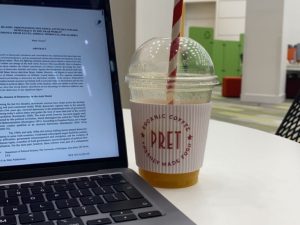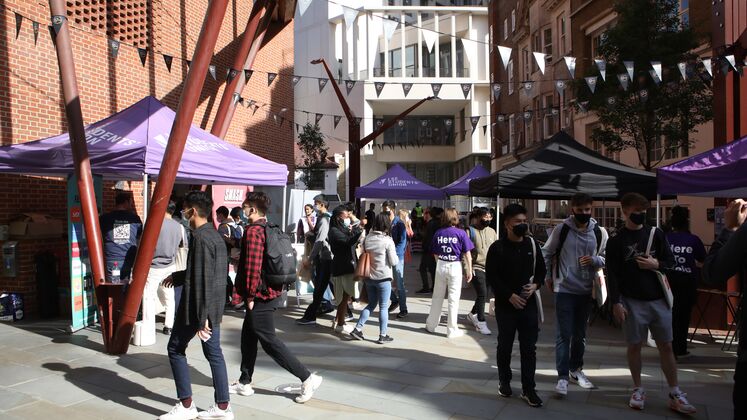Getting into LSE was a big achievement for me, and amongst the excitement of my offer I almost overlooked the aspect of preparing to start my degree. The prospect of studying in a brand-new city may be thrilling for some and overwhelming for others (or you may even be feeling a mix of both emotions), so here is how I prepared for life at LSE.
Like most students, before applying to LSE I read through the course information and the course structure to gauge how my next three years were going to look like. The course information also contained a list of preliminary readings (however, here I can only speak for BSc Sociology and not other courses). As this wasn’t something that appealed to me, I found myself instead purchasing books that were within my interest yet still related to modules and aspects of my course. Personally, this is something that I believe has helped me further along in my course as I’m able to reference these books and texts within my formative essays and it’s given me a foundation of knowledge to build upon. Going into your course knowing a bit of background knowledge is definitely useful, even if it’s just an awareness of key concepts or terminology – it’s almost guaranteed to come in handy during your seminars.
Similarly, as soon as you have been assigned an LSE account, check out the Moodle pages for your modules! As well as an outline of how your course is going to look like, on Moodle you will have access to further reading, office hours for staff involved in your course and general guidance and criteria. If you’re unsure about how your year is going to look then this is the place to go.
Another thing that was crucial to me was to get to know and to chat with soon-to-be classmates online before the start of the academic year in September. Starting in a new city can be scary and even scarier if you don’t know anyone – especially if it’s a new country as well as a new city as many students are international. Most courses that I’m aware of have group chats on apps such as WhatsApp, and there is often Fresher’s groups on Facebook which is where these links tend to be shared. With my cohort there was a big Google Doc which had links to group chats and the opportunity for people to state their name, course, accommodation, and any social media handles they had.
Even if you don’t want to join to make friends right away or you’d rather wait to meet people in person, my course’s group-chat is still frequently used to promote events, discuss the lectures and just general chat so they’re worth joining.
A third thing I did before starting LSE sounds quite obvious, I made sure I had adequate stationery and folders for all my work. Personally, when I thought of studying at university, for some reason I didn’t think there would be much writing and I thought it would all be done on my laptop– but this is not the case. Many exams in January and the summer are still written exams which means it is important to stay in the habit of writing things out and not becoming overly reliant on typing.
I still find it beneficial to write notes and make revision materials just as I did for the A-Levels, and of course everyone studies differently but folders are also useful for any printed material you will be given. Plus, you may choose to print off readings rather than reading and highlighting online. Organisation is most definitely a key part to successful studying as when writing essays you don’t want to be hunting around for readings and notes, you want them all in one place and in a form that you understand.
Starting university can be daunting, but as long as you start with some degree of preparation you’ll be perfectly fine. My biggest tip would be, remember to communicate with people! This was something I failed to do until halfway through the first term and I found the start of university much more comfortable once I had friends and acquaintances that I could go to when I needed a helping hand or a friend to talk to.




